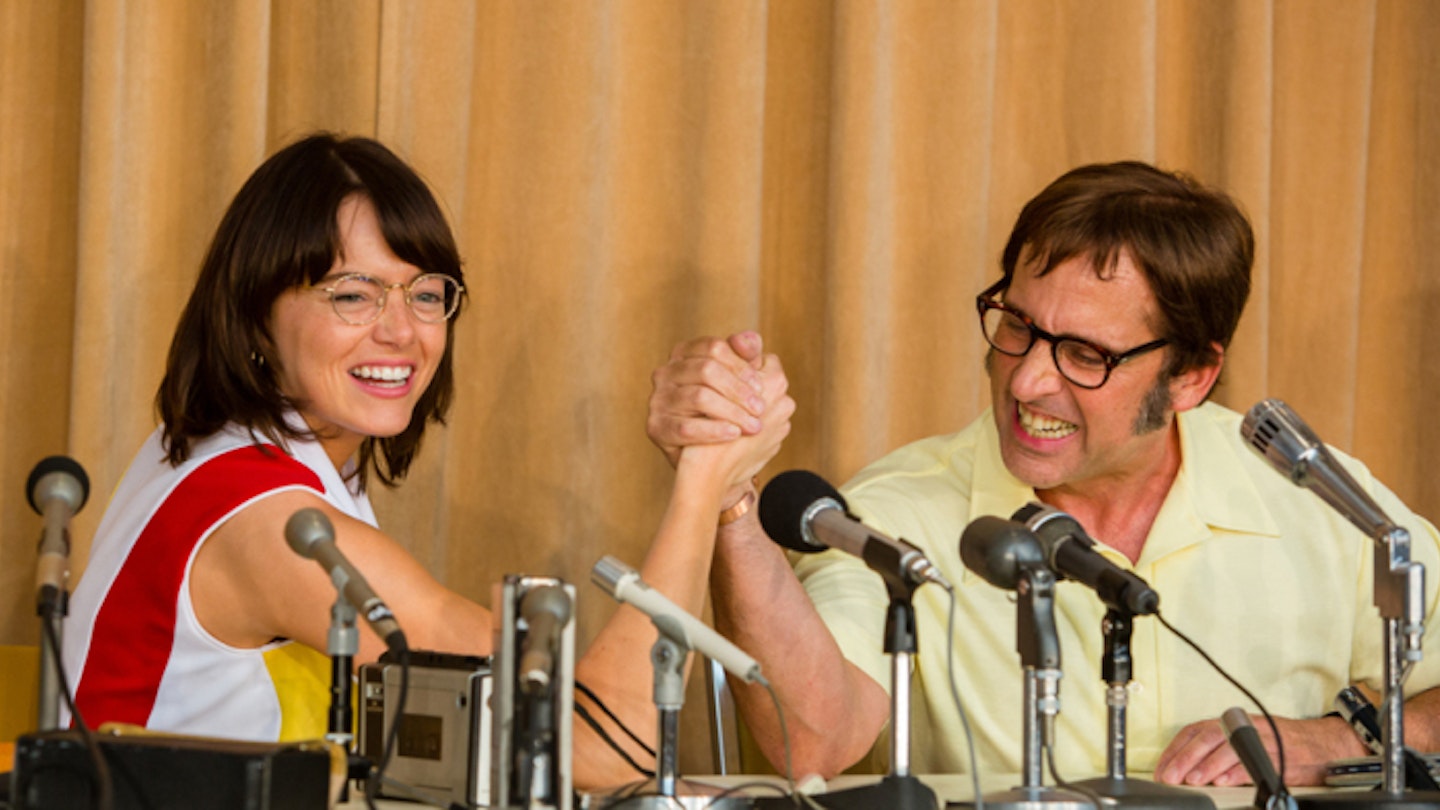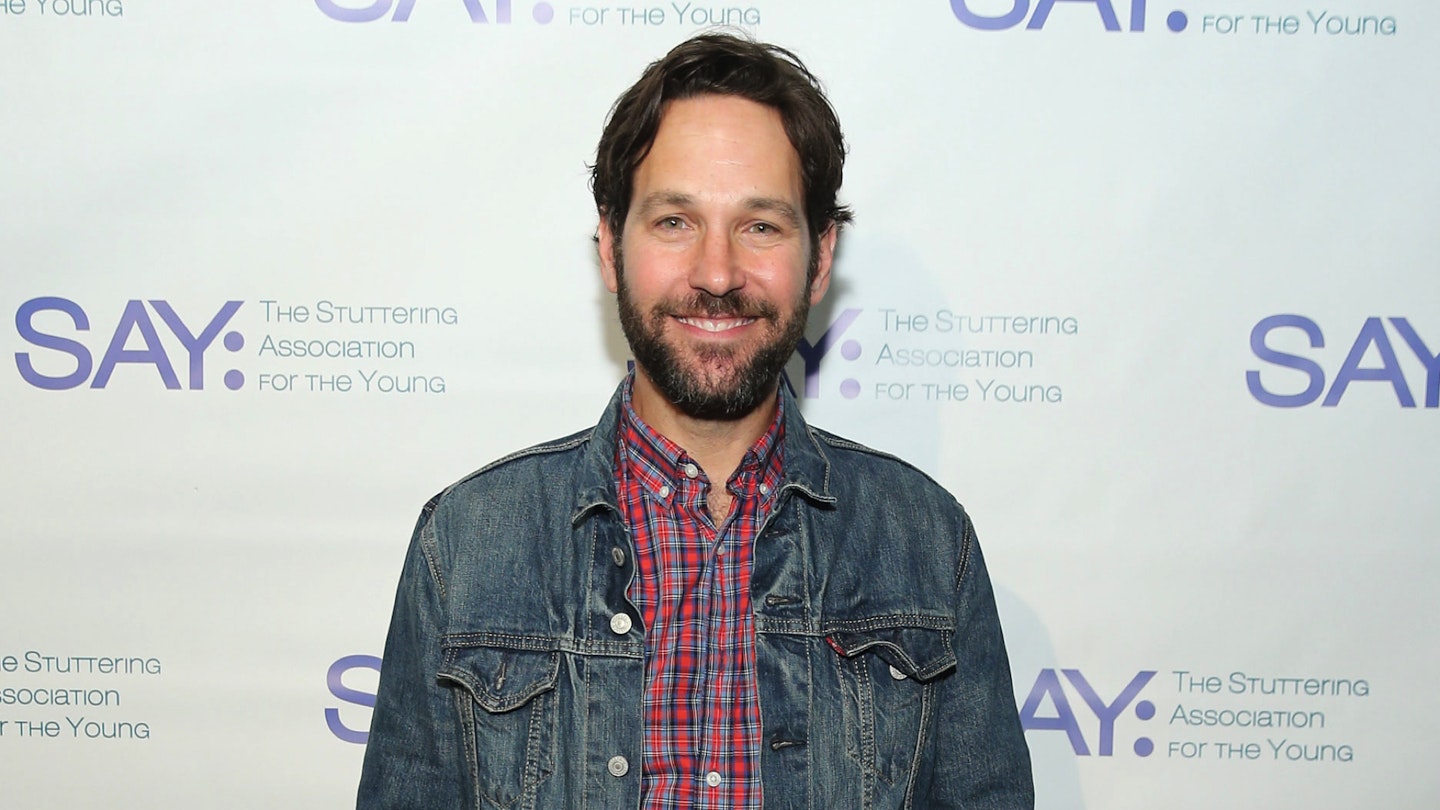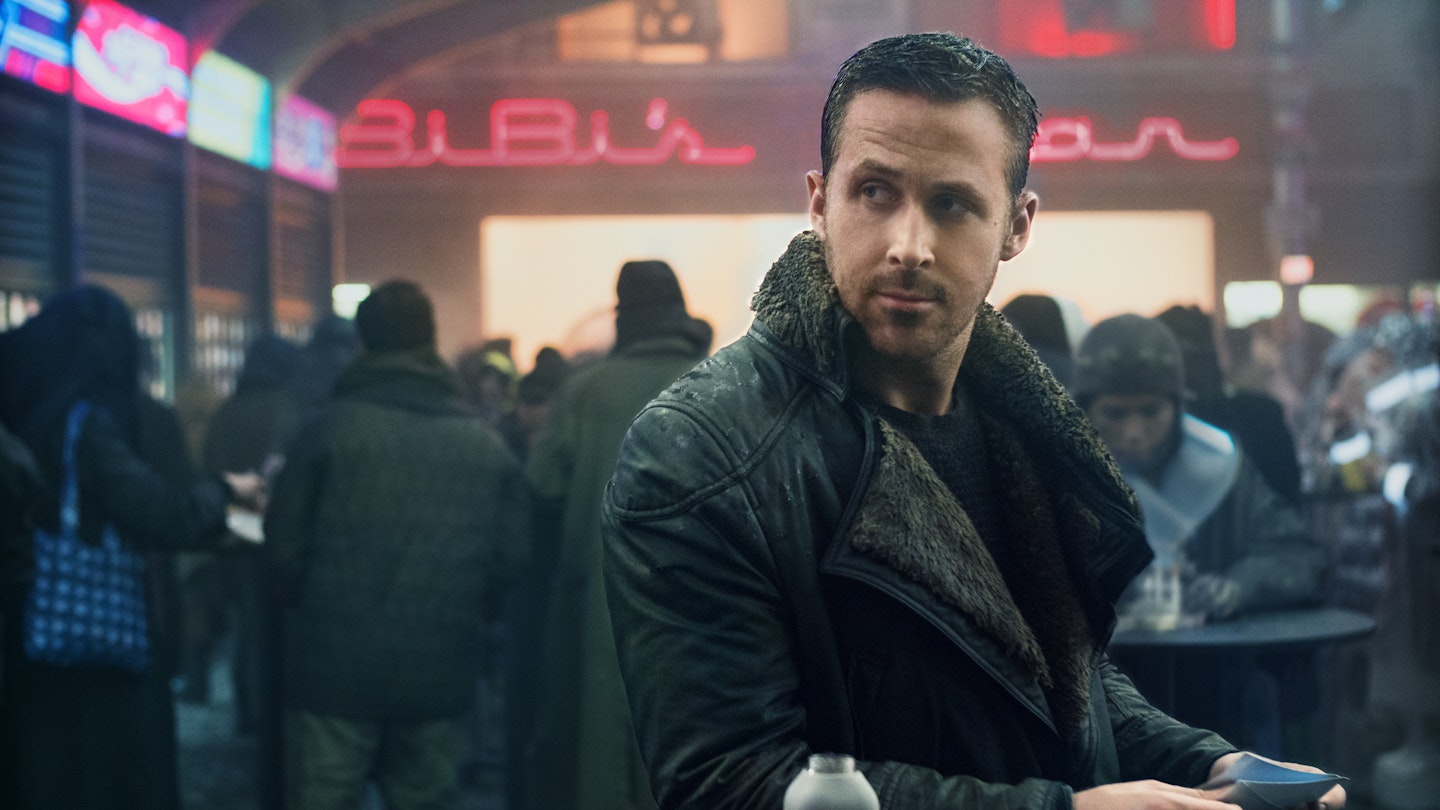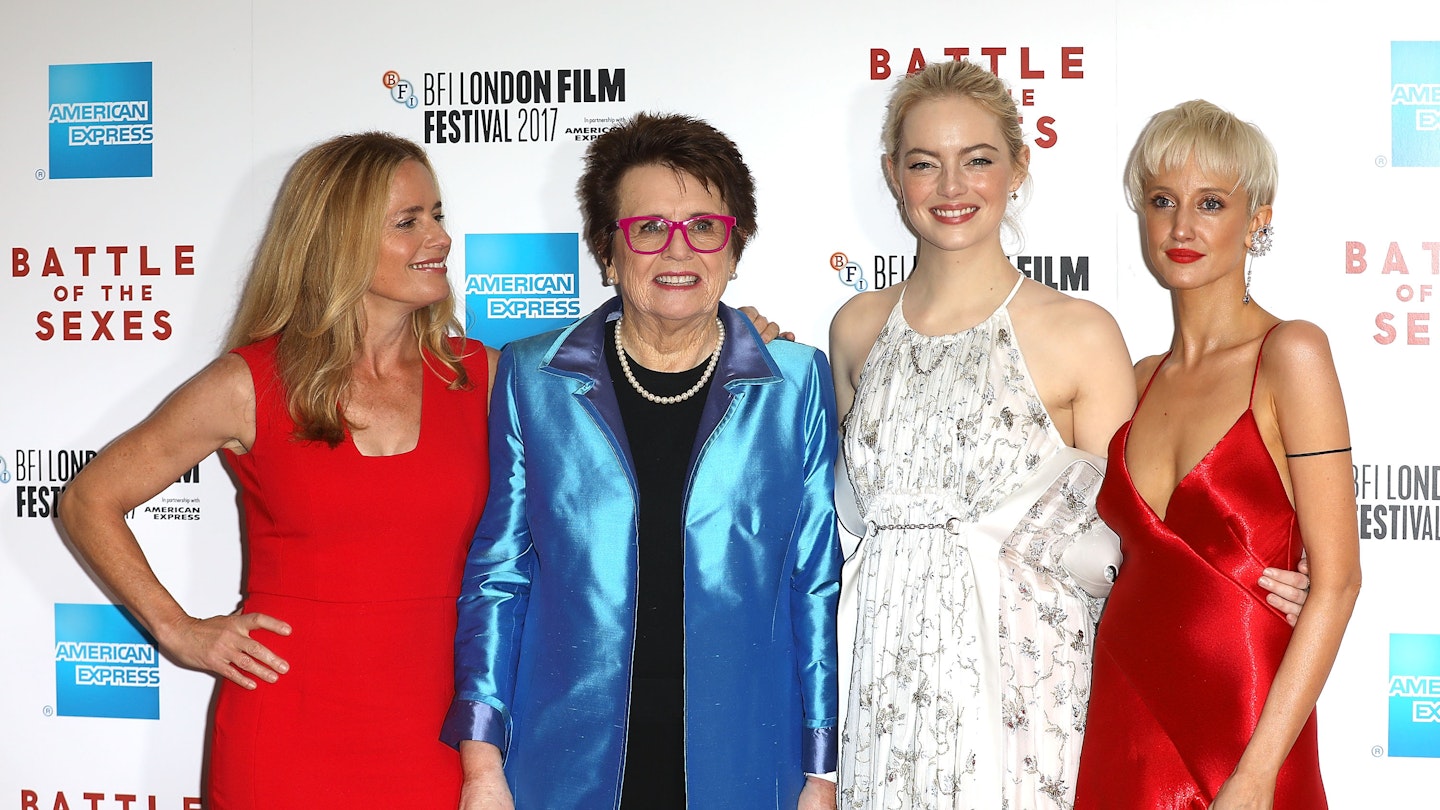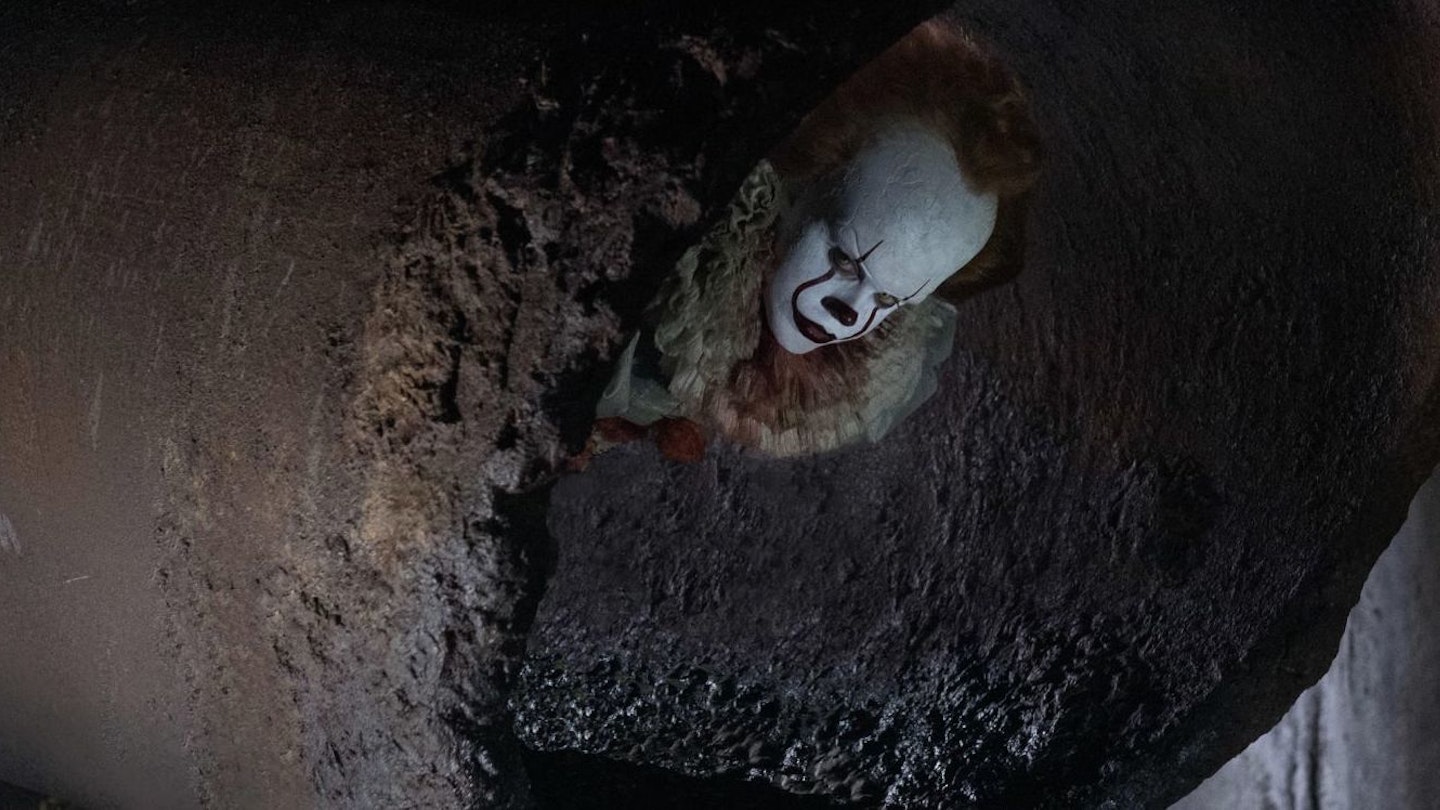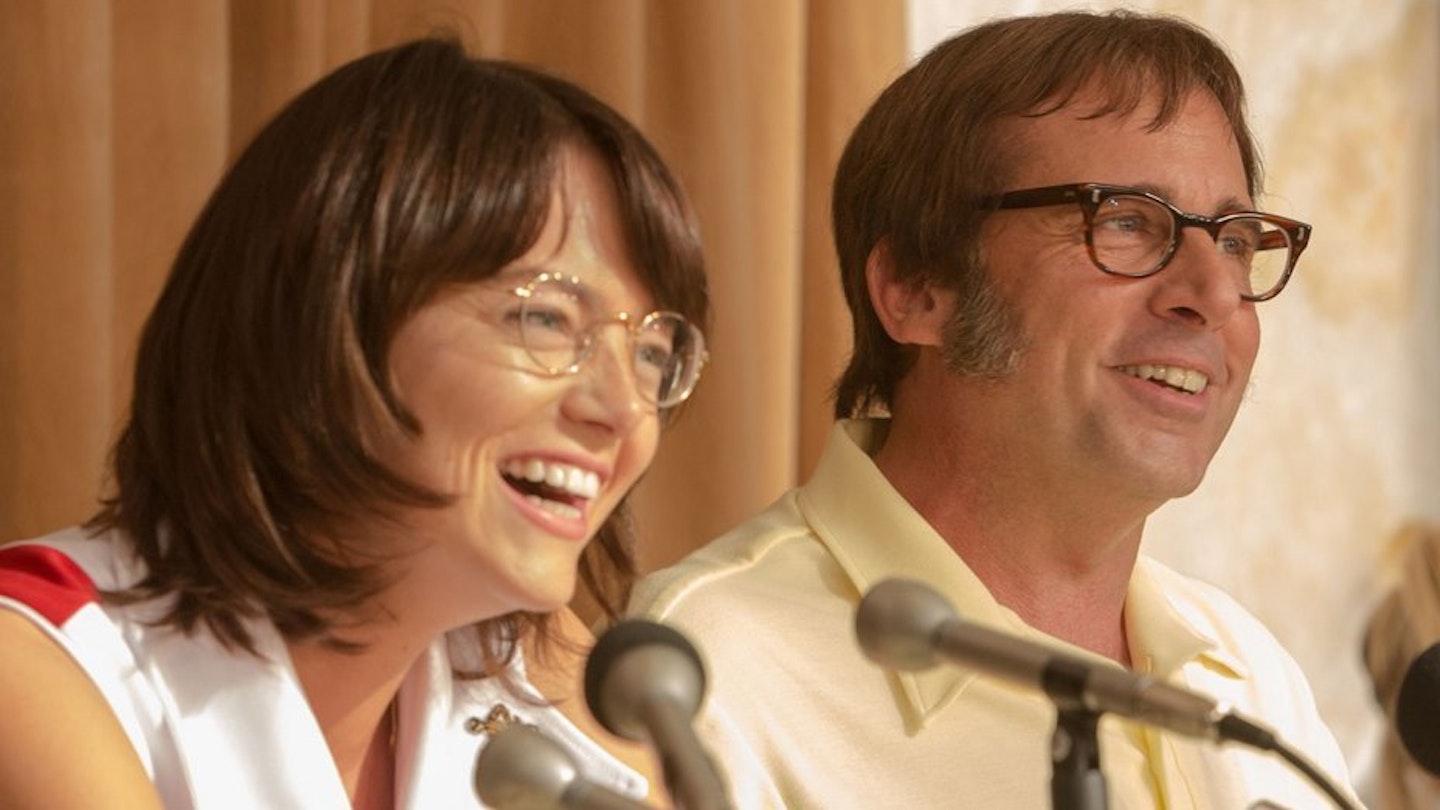Tennis movies are like buses. Nothing for years, then two in the space of two months: first Borg Vs McEnroe, and now Battle Of The Sexes, Jonathan Dayton and Valerie Faris’ dramatised retelling of the 1973 match between tennis queen Billie Jean King (Stone) and former US Open winner Bobby Riggs (Carell) — a landmark skirmish in the highly charged fight for women’s rights.
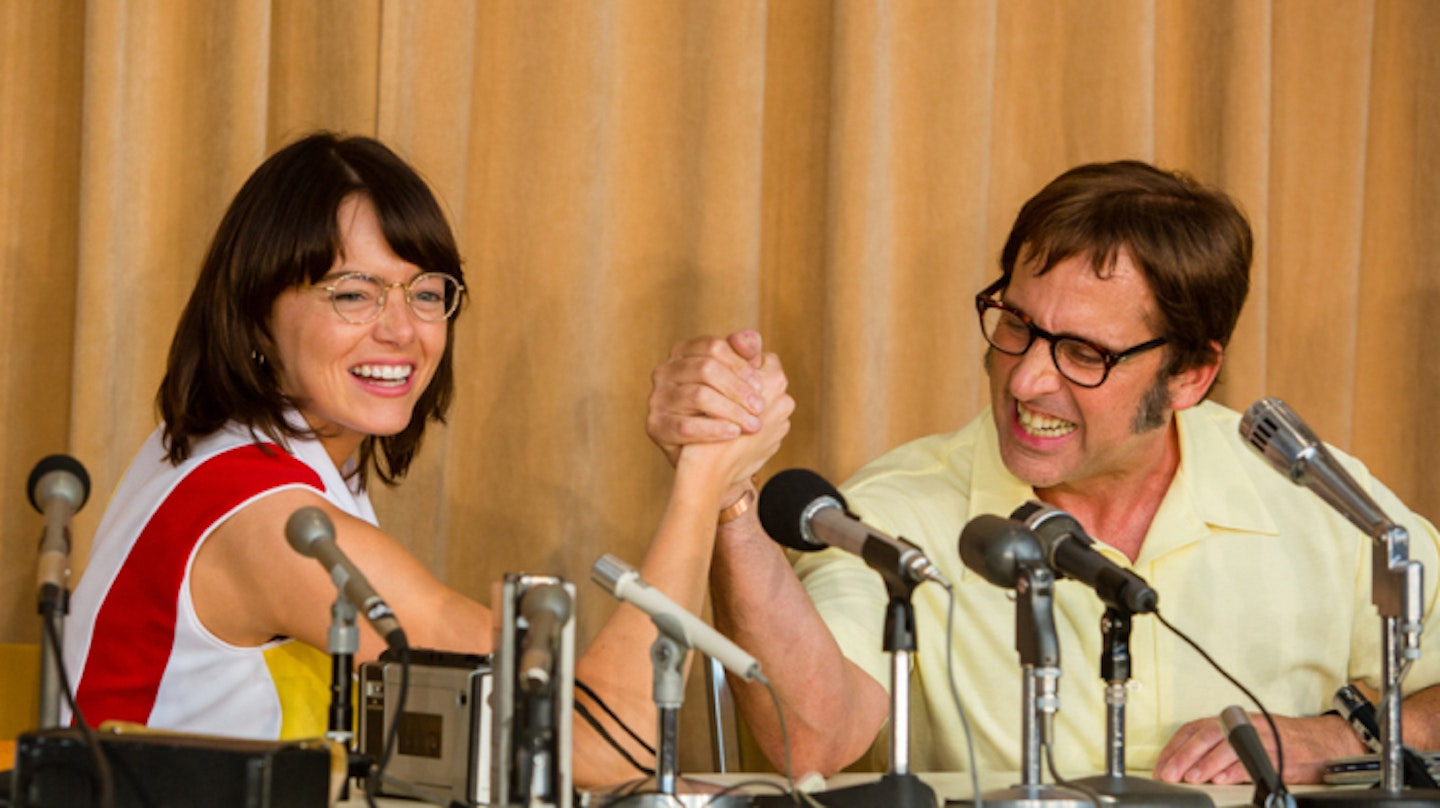
[A] highly enjoyable confection, as light on its feet as its central central figure.
The match reached a staggering global audience of 90 million people, and is widely credited with raising the profile of women’s tennis. But change was in the air — in the same year (and the starting point for this film) the major female players, with King front and centre, left the male-dominated International Tennis Federation to form the Women’s Tennis Association. And, as a direct result, that year saw the US Open first award equal prize money to both the men’s and women’s champions. These story threads entwine in the film, alongside another, more personal revolution in King’s life — her realisation that, despite a happy marriage, she is gay.
So far, so weighty, but Dayton and Faris — who directed the delightful Little Miss Sunshine — have created another highly enjoyable confection, as light on its feet as its central figure. Much of the charm comes from spot-on casting. Emma Stone as the unassuming but hugely driven Billie Jean is highly appealing, capturing both the tennis star’s charisma and smarts as she passionately pursues her cause, and private confusion over her feelings for WTA hairdresser Marilyn (Andrea Riseborough). Steve Carell, meanwhile, is perfect as the colourful and controversial Bobby. Not really in it to make any political point despite his brash exclamations (“I’m gonna put the ‘show’ back in ‘chauvinism’”), instead he’s just bored with being the washed-up has-been, and is desperate for attention.
Visually it pops with ’70s colour, from stylist Ted Tinling’s (Alan Cumming) bespoke tennis dresses to the blue skies and golden sunshine of the locations. And for all the serious issues being explored, the directors and screenwriter Simon Beaufoy maintain a cheeky sense of humour throughout, a stand-out scene being Riggs’ disastrous Gamblers Anonymous meeting — in which, to the horror of the group leader, he offers the insight that the problem for GA attendees is that they’re just not very good at it. It’s a film that winningly communicates a sense of possibility — even the ludicrous pageant of the match, with a pig (for the self-proclaimed male chauvinists) careering around the arena, adds to the feel of celebration of something good around the corner. Little did they know then that the issue of equal rights would still be so fraught some four decades later.
A glowing celebration of a time when a tennis match, and a handful of determined women, could change the world for the better, it’s a hard heart that won’t be cheering when it comes to game, set and match.
